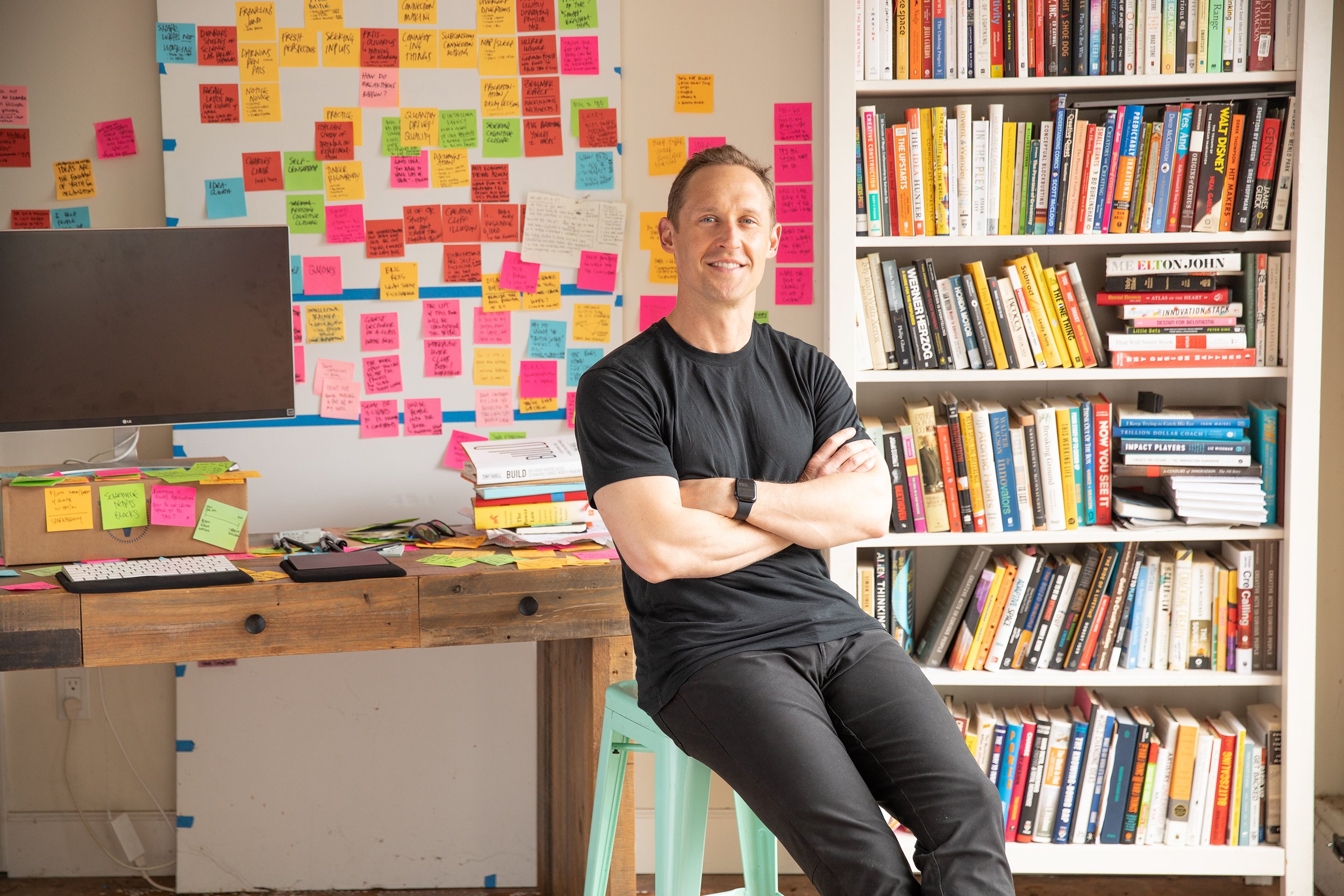
Methods of the Masters
A blog on the art & science of creative action.
Explore Blind Alleys
What do Elon Musk and Albert Einstein have in common? Both of them were willing to examine things that other people dismissed as too trivial to warrant their attention.
Join A Junto
Ben Franklin is one of history’s most prolific innovators, with breakthroughs ranging from literature to science to civics. How’d he do it? A simple but profound weekly ritual to spur fresh thinking.
Fall In Love With The Problem, Not The Solution
Uri Levine is a “Duocorn” (two-time unicorn founder) on a mission to help innovators find their calling. They key, he says, is to “fall in love with the problem, not the solution.”
Embrace the Muse
How do you court the muse? Innovators from Jeff Bezos to Victor Hugo to Jerry Seinfeld teach us embrace every bit of inspiration as soon as it arrives - by writing it down.
Hug The Haters
How did André 3000 find his voice as a young artist? He and Rick Rubin dug deep into the creative process and illuminate the value of critical feedback.
Be A Skeptic
Design is an inherently optimistic field. We are, after all, trying to make the world a better place. But this optimism can lead to naïveté, and can actually hinder real progress, if left unchecked.
Try More Than One
One of the most fantastic definitions I’ve ever heard comes from an anonymous seventh grader in Ohio: “Creativity is doing more than the first thing that comes to your mind.”
Break Smart Rules
The rules for what smart people are supposed to do are often at odds with what those same smart people do to court a breakthrough. What gives?
Look for Problems
Richard Feynman advised would-be geniuses, “You have to keep a dozen of your favorite problems constantly present in your mind…” Here’s how breakthroughs get started.
Look for Connections
A fascinating psychology study reveals a disturbing truth: the world around is ripe with potential inspiration that is far too often unrealized simply because we aren’t looking.
Look at Nothing
Steve Jobs said, “Creativity is just connecting things.” But to connect, you’ve got to disconnect, too. A growing body of research demonstrates the benefits of literally “looking at nothing.”
Don’t Decide
Tina Fey reveals the technique she learned from Lorne Michaels the moment she needed it most: when deciding to she’d play Sarah Palin on SNL.
Do An Idea Quota
Pianists play the piano. Swimmers do laps. But what about innovators? What do they do? Innovators generate abundant options. Try this.
Don’t Quit Diverging
Most folks want to stop diverging as quickly as possible. As soon as a reasonably good idea comes up, there's a collective sigh of relief which says, "Whew! We did it! Mission accomplished!" …
Designate A Thinking Chair
Edison is one of history’s most prolific inventors. He made regular professional use of a common personal past-time: napping.
Provoke Yourself
What makes an idea a good idea? Research suggests that the best idea — irrespective of commercial merits — is actually the one that provokes thinking the most.
Escape the Tyranny of Reason
David Ogilvy said, “The majority of business men are incapable of original thinking because they are unable to escape the tyranny of reason.” Sound impossible? Here’s how to do it.
Gather Firewood
"Catching the Big Fish," deconstructs David Lynch's creative process. Of particular note is a simple technique he calls gathering firewood…
Design for Extreme Users
You might think the best place to start designing is smack dab in the middle of the bell curve. But it’s not. The history of innovation teaches that the best breakthroughs (even for the middle of the curve) come from the extremes.




















